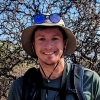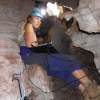Osher Lifelong Learning Institute / CARTA Master Classes
CARTA members and prominent UCSD scholars address topics related to human-origins research in biennial Osher classes.
Past Classes:
| Media | Class | |
|---|---|---|
 Pascal Gagneux |
|
The Quest for Human Origins Apr 1, 2025 Humans present a striking paradox; combining an obvious primate nature with distinct behavioral traits makes them notable outliers among species. Our understanding of human origins is limited by our meager knowledge of the appearance of key human innovations, including use of language, fire,... read more |
 Federico Rossano |
|
Animal communication Nov 27, 2024 This lecture will explore how different animal species communicate and what is similar and different between human communication and other animals' ways of communicating. We will review different types of animal signaling, the informative vs. manipulative functions of communication, when and why... read more |
 Rachel Mayberry |
|
How language in the environment shapes the child’s brain Nov 13, 2024 Why talk to babies? To grow their brains! Babies don’t talk to us, so why should we talk to them? Do they understand us better when we use high pitched and simplified baby talk? Why do we so often use baby talk with babies anyway? Do babies get confused when we use more than one language with them... read more |
 Nicholas Nelson |
|
Anthropogeny Graduate Specialization experience Oct 30, 2024 This lecture will share the experience of working towards a Ph.D. in biology at UC San Diego with tales and insights gleaned as a student of human origins in CARTA’s Anthropogeny Graduate Specialization. Nicholas Nelson investigates the neuroscience of chronic pain, yet his most impactful graduate... read more |
 Pascal Gagneux |
|
The planet-altering ape Oct 16, 2024 This lecture will address how humans became “the planet-altering ape” that is now causing the sixth mass extinction and climate change crises and how we can become “the planet-protecting ape.” The evolutionary lineage leading to humans underwent many defining changes since our last common ancestor... read more |
 Tatum Simonson |
|
Human high-altitude adaptation Oct 2, 2024 This lecture focuses on how permanent high-altitude residents have adapted to low oxygen levels in the Himalayan, Andean, and Ethiopian highlands. Important biological factors are key to these adaptations, which vary among continental groups. Recent studies show that different changes lead to... read more |
 Pascal Gagneux |
|
One Health and Emerging Diseases Dec 7, 2022 This talk will address the latest insights into the origin of humans and how this single species of primate became a planetary force. I will discuss biological aspects ranging from molecules (e.g., DNA, glycoproteins, antibodies, etc.) to societies (e.g., nature deficit syndrome, habitat... read more |
 Margaret Schoeninger |
|
Evolution of the Human Diet Nov 23, 2022 This lecture will discuss the evolution of the human diet in a comparative setting. It will highlight the importance of cultural inventions from hunting prey much larger than ourselves to processing and cooking food. All indications are that humans are now biologically dependent on the cultural... read more |
 Carol Marchetto |
|
Stem Cells and Human Evolution Nov 9, 2022 Comparative analyses of brain cells in closely related species can shed light on changes occurring during evolution. The study of post-mortem brains of nonhuman primates (NHPs) has been limited and often does not recapitulate important species- specific developmental hallmarks. This talk will... read more |
 Adena Schachner |
|
Music, Dance, Evolution: The Origins and Consequences of Human Musicality Oct 26, 2022 Music and dance are cultural universals and begin early in infancy. In this talk, we'll explore the origins of these fundamentally human behaviors, from an evolutionary, cognitive, and developmental perspective. Why can humans move to a beat, while many other species cannot? What can children’s... read more |
 Charles Kennel |
|
The Coming Crisis of the Anthropocene Oct 12, 2022 This talk will broadly trace connections between past and present human exploitation of the environment, the coming crisis of the Anthropocene and what we humans can do to alleviate the crisis. |
 Lindsay Hunter |
|
Rising Star Cave’s Chambers of Secrets Dec 2, 2020 The Rising Star Cave near South Africa’s Cradle of Humankind World Heritage site has produced some of the greatest fossil hominin discoveries. Paleoanthropologist and underground astronaut Lindsay Hunter gives a firsthand account of its exploration. |
 Federico Rossano |
|
The Evolutionary Roots of Human Sociality Nov 25, 2020 Humans are social animals, but so are many other animals. Yet compared to other non-human primates, humans appear to be more cooperative with each other, have greater control of their communicative signals, and appear to spend more time interacting with each other. So what is special about human... read more |
 Patricia Churchland |
|
The Brains Behind Morality Nov 4, 2020 This lecture will discuss the concept of morality as it relates to human behavior. What are the social and neurobiological roots of moral behavior? |
 Pascal Gagneux |
|
Evolution of the Human Diet Oct 7, 2020 This lecture will address the evolution of the human diet in a comparative setting. It will highlight the importance of cultural inventions from hunting prey much larger than ourselves to processing and cooking food. All indications are that humans are now biologically dependent on the cultural... read more |
 Margaret Schoeninger |
|
Fossil Record of Human Origins Sep 30, 2020 This lecture focuses on the fossil record with an emphasis on ecological changes and associated dietary changes facilitating the appearance of anatomically modern humans (AMHs). We begin by tracing the evolution of the earliest primate-like mammals from more than 50 million years ago (mya), to the... read more |

